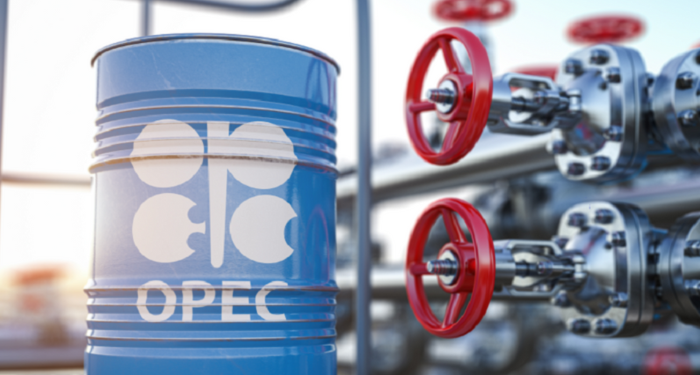New concerns have emerged about Nigeria’s ability to deliver on its record ₦54.99 trillion 2025 budget, as new data from the Organisation of Petroleum Exporting Countries (OPEC) shows the country’s crude production remains sluggish.
According to OPEC’s July Monthly Oil Market Report released Tuesday, Nigeria pumped an average of 1.547 million barrels per day (bpd) in June — excluding condensates — up slightly by 1.24% from May’s 1.528 million bpd.
However, figures sourced directly from Nigerian authorities suggest actual output may be even lower. On that basis, production stood at 1.505 million bpd last month, edging up from 1.453 million bpd in May.
Meanwhile, the price of Bonny Light, Nigeria’s flagship crude grade, hovered around $69 per barrel on Tuesday — six dollars below the $75 benchmark price embedded in the 2025 federal budget.
The output shortfall and weaker prices threaten to widen Nigeria’s fiscal gaps at a time when Africa’s biggest oil producer is struggling to boost exports and tackle persistent oil theft and pipeline sabotage.
Read also: Oil Prices Surge Amid Israel-Iran Strike Speculation
The nation’s N54.99 trillion 2025 budget is based on $75 per barrel, 2.06 million bpd output and exchange rate N1, 500/$.
However, in an interview with the press, yesterday, Wumi Iledare, Professor Emeritus in Petroleum Economics & Policy Executive Director, Emmanuel Egbogah Foundation, Abuja, said: “I recalled clearly expressing concern at the time that the budget assumptions bordered on daydreaming and were unrealistic. And now, here we are.
“The key budget anchors – production volume, oil price and costs – remain highly unpredictable, with significant deviations from the initial assumptions. This clearly shows that the budget process needs serious improvement.”
Mazi Colman Obasi, President of the Oil and Gas Service Providers Association of Nigeria (OGSPAN), cautioned that Nigeria was at a delicate economic crossroads and needed to reconsider its spending priorities. He criticised the government for focusing on programmes he believed had little long-term value, arguing that resources ought to be channelled into initiatives capable of driving sustained growth.
Obasi stressed that Nigeria must ensure its oil and gas revenues were managed optimally to support economic diversification, adding that the country should work towards a future where its survival did not depend heavily on oil and gas earnings.
